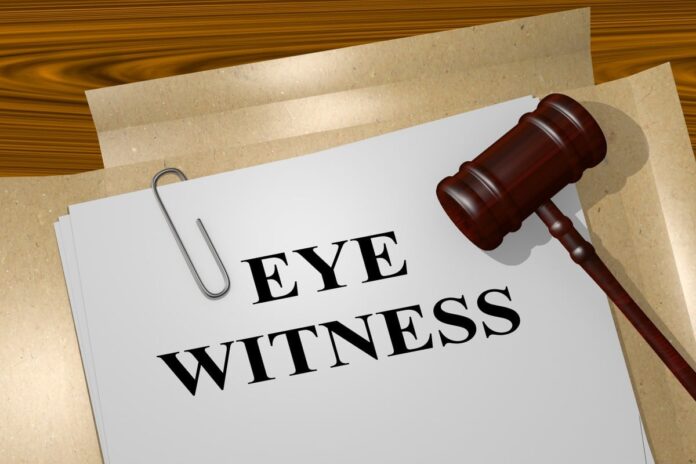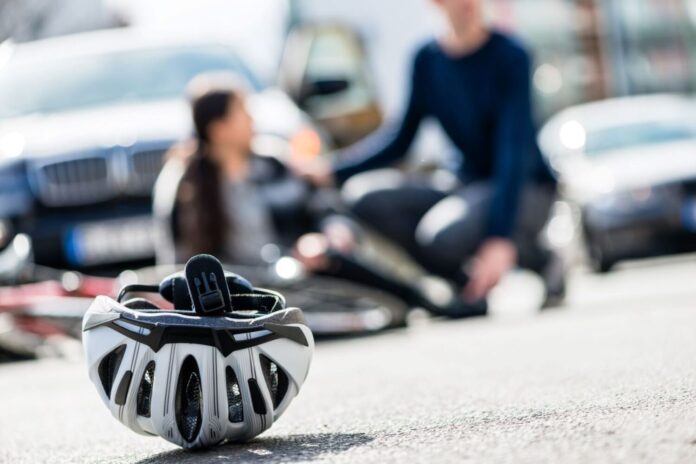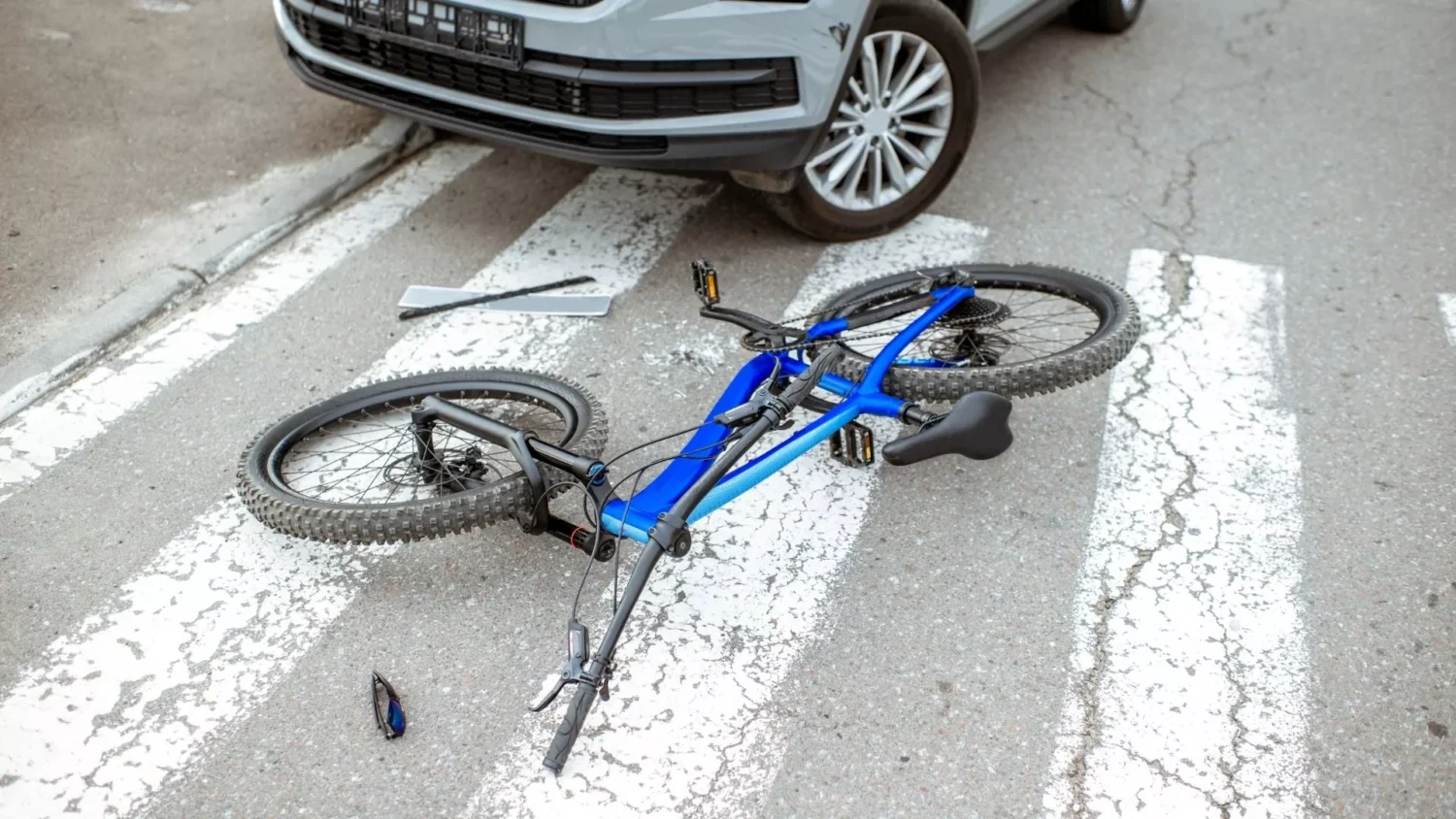Bicycling is not only a great form of exercise but also an environmentally friendly mode of transportation.
However, despite its many benefits, cycling comes with its risks, including the potential for accidents.
If you find yourself involved in a bicycle accident, knowing what steps to take immediately afterward is crucial for your health, legal rights, and the smooth handling of any claims.
Assessing the Situation
The first thing to do after a bicycle accident is to assess the situation. Your safety and that of others involved is the top priority. If you can move without causing further injury, try to get to a safe location away from traffic. Look around to understand the extent of the accident, identify any immediate dangers such as oncoming vehicles or hazardous road conditions, and make a mental note of everything.
Check yourself for injuries, even if they seem minor at first glance. Adrenaline can mask pain, so it’s essential to do a thorough check. If you’re with others, check on them too. If anyone is seriously injured, call emergency services immediately. Remember, it’s better to err on the side of caution and get medical help even if injuries seem minor.
Gathering Information

Once the immediate danger has passed, gathering information is the next critical step. This includes exchanging details with any other parties involved in the accident, such as drivers or other cyclists. Get their names, contact information, and insurance details. If the accident involved a motor vehicle, note the make, model, and license plate number of the vehicle.
Additionally, collect contact information from any witnesses. Their statements could be invaluable later, especially if there is a dispute about how the accident occurred. Make sure to document the scene as thoroughly as possible. Use your phone to take photos and videos from different angles, capturing the location, any damages to property, road conditions, traffic signs, and any visible injuries.
Reporting the Accident
After a bicycle accident, it’s essential to report the incident to the relevant authorities. This often means calling the police, especially if there are injuries or significant property damage. The police will document the accident, which will be crucial for any legal proceedings or insurance claims.
When speaking with the police, be factual and detailed in your account of the accident. Avoid assigning blame or admitting fault at the scene, as emotions and adrenaline can cloud judgment. A police report will provide an official record of the incident, which can support your case if there are disputes or if you need to file a claim.
Seeking Medical Attention
Even if you feel fine immediately after the accident, seeking medical attention is imperative. Some injuries, such as concussions or internal injuries, might not show symptoms right away but can be serious. A medical professional can assess your condition and provide the necessary treatment.
Keep a record of all medical visits, treatments, and expenses related to the accident. These records will be crucial for any insurance claims or legal actions you might pursue. Follow the medical advice given to you, and do not underestimate the importance of follow-up appointments.
Documenting Your Experience

Keeping a detailed record of your experience after the accident can be beneficial. This includes maintaining a journal of how you’re feeling, any pain or discomfort, and the impact on your daily life. Note down any missed workdays, changes in your routine, or emotional distress.
These personal records can help illustrate the full extent of the impact of the accident on your life, which is essential for insurance claims or legal cases. They provide a narrative that supports the physical evidence and medical records, offering a comprehensive view of your situation.
Dealing with Insurance
Navigating the insurance process can be complex and sometimes frustrating. Start by notifying your insurance company about the accident as soon as possible. Provide them with all the collected information, including the police report, witness statements, photos, and medical records.
Be prepared for the insurance adjuster to ask detailed questions about the accident. Answer honestly but stick to the facts. It’s advisable not to accept the first settlement offer if you feel it’s inadequate. Insurance companies often aim to minimize payouts, so understanding the full extent of your damages and negotiating for a fair settlement is crucial. If necessary, seek legal advice to ensure you receive appropriate compensation.
Legal Considerations
In some cases, legal action may be necessary, especially if there are disputes about fault or if the insurance settlement is insufficient. Consulting with a lawyer who specializes in bicycle accidents can provide you with the guidance needed to navigate this process. They can help protect your rights, handle negotiations with insurance companies, and represent you in court if required.
For those in Hamilton or nearby areas, Visit injured.ca to find experienced lawyers who can assist you in these matters. Having professional legal support can alleviate much of the stress associated with the aftermath of an accident, allowing you to focus on recovery.
Preventing Future Accidents

After dealing with the immediate aftermath, it’s natural to think about how to prevent future accidents. Reflect on the accident and consider any lessons learned. Were there any actions you could have taken differently? Are there improvements you can make to your cycling habits, such as wearing brighter clothing, using more visible lights, or choosing safer routes?
Additionally, ensure your bicycle is in good condition. Regular maintenance can prevent mechanical failures that could lead to accidents. Familiarize yourself with local traffic laws and cycling best practices to enhance your safety on the road.
Taking Care of Your Mental Health
The emotional and psychological impact of a bicycle accident can be significant. It’s normal to feel shaken, anxious, or even fearful of riding again. Taking care of your mental health is just as important as addressing physical injuries.
Talk to friends or family about your experience, or seek professional counseling if needed. Joining a support group for accident survivors can also provide a sense of community and understanding. Gradually ease back into cycling, starting with short, familiar routes, and rebuild your confidence over time.
Conclusion
A bicycle accident can be a traumatic experience, but knowing what steps to take can make a significant difference in managing the aftermath. From assessing the situation and gathering information to seeking medical attention and dealing with insurance, each step is crucial for your recovery and for protecting your legal rights.









